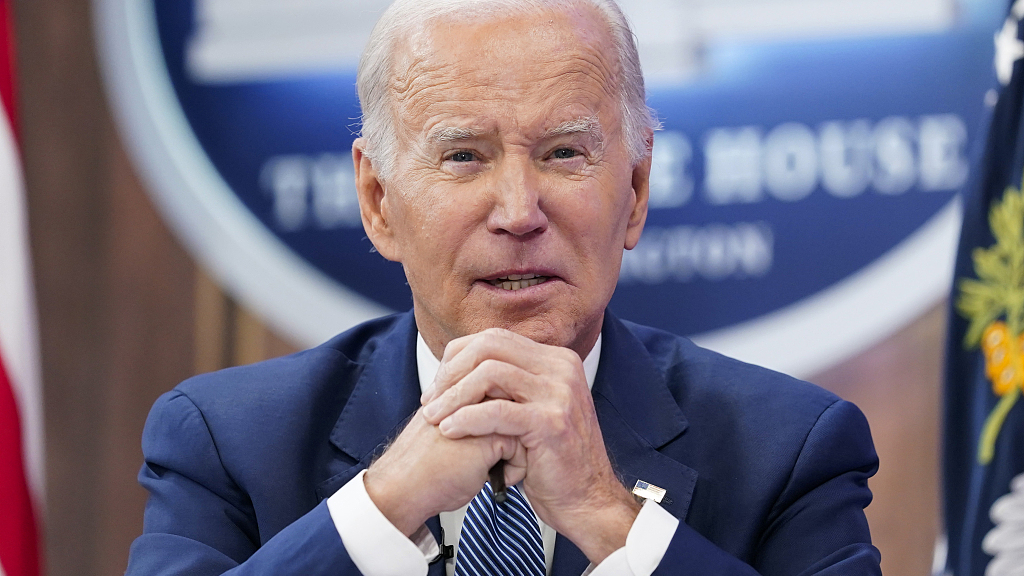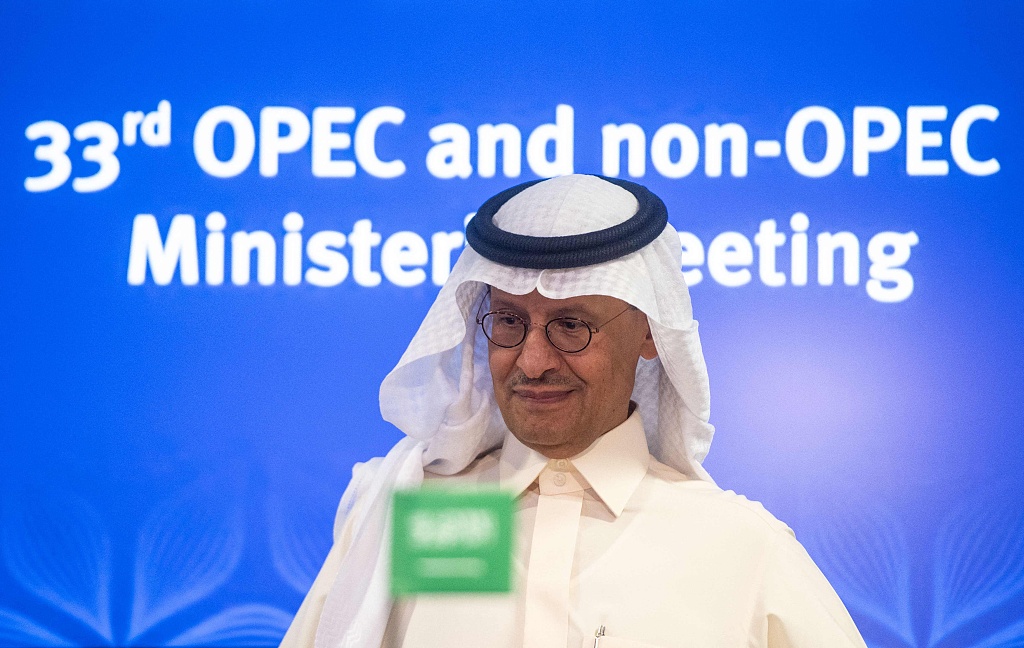
U.S. President Joe Biden speaks at a meeting in the White House complex in Washington, D.C., U.S., October 11, 2022. /CFP
U.S. President Joe Biden speaks at a meeting in the White House complex in Washington, D.C., U.S., October 11, 2022. /CFP
Editor's note: James DeShaw Rae is a professor of politics and the director of the Asian Studies Program at California State University, Sacramento. The article reflects the author's opinion, and not necessarily the views of CGTN.
OPEC+ recently announced that it would cut oil production by two million barrels per day, approximately two percent of global oil demand. OPEC+ controls over half of global oil supplies and about 90 percent of proven oil reserves. Prices immediately jumped nearly two percent.
Indeed, American frustration was so palpable that U.S. President Joe Biden even threatened consequences for Saudi Arabia, while Democratic Party leaders in both the Senate and House introduced the idea of a law to bar arms sales to the Middle Eastern country for one year. The United States argues that the price spike in oil will benefit Russia in particular, as it is a major energy exporter and will gain valuable hard capital for its ongoing conflict in Ukraine.
Of course, the main predicament is the impact on the upcoming and very consequential U.S. midterm elections. In fact, The United States requested the oil cartel delay the decision by one month, which of course, would leave the news and its tangible impact after the upcoming American elections. The outcome of these elections will dramatically impact the Biden administration's agenda.
The battle for the U.S. Senate is extraordinarily tight. The current alignment is exactly a 50-50 split between the Republicans and Democrats with Vice President Kamala Harris holding the tie-breaking vote for the Democrats. RealClearPolitics predicts the Republicans gaining a two-seat advantage, though polling generally suggests a return to the evenly divided status quo.
Pessimism about the persistent inflationary pressures across the economy are toxic for the party in power, and the slight reduction in gasoline prices at least allowed the Biden administration to argue that energy prices were heading in the right direction.
Now, a noticeable uptick in prices only weeks before voting day could swing the swing states like Arizona, Georgia, Nevada, and Pennsylvania to the conservatives, who have been gaining traction blaming Biden's spending spree for much of the domestic inflation, though global forces are more responsible. Control of the Senate is key for approving presidential nominations, most importantly the U.S. Supreme Court, should an unexpected vacancy occur.
Though gas prices may not matter as much here to the ultimate outcome, it could impact late deciding voters and create a narrative of a landslide for the opposition party. The midterms essentially kick off the calendar for the next presidential elections, and offer a very real judgment about the party in power and their prospects two years later.
In such tight races, small things matter, and gas prices have long been one of the most visible expressions of rising costs. Liberal arguments that these high costs should motivate consumers to purchase prohibitively expensive electric vehicles left parts of the public feeling that Democrats are out of touch. And when a friend as close as Saudi Arabia ignores an American president, it gives the impression of weakness.

Saudi Arabia's Minister of Energy Abdulaziz bin Salman at a press conference after the 45th Joint Ministerial Monitoring Committee and the 33rd OPEC and non-OPEC Ministerial Meeting in Vienna, Austria, October 5, 2022. /CFP
Saudi Arabia's Minister of Energy Abdulaziz bin Salman at a press conference after the 45th Joint Ministerial Monitoring Committee and the 33rd OPEC and non-OPEC Ministerial Meeting in Vienna, Austria, October 5, 2022. /CFP
In the final analysis, we can observe a few realities in this Saudi-American scuffle. First, the Democratic Party gained a few legislative accomplishments early in the Biden term in office, but since the Afghanistan withdrawal fiasco, has been on the backfoot, more reactive than setting the agenda. Mobilizing moderates over the overturning of reproductive rights (Roe v Wade) stemmed some of the tide, but inflation and economic woes continue to dog the party, and trends point toward a Republican wave cresting, despite rather poor candidates in key election battlegrounds.
Second, a series of reversals have left Russia in a weaker position diplomatically and politically, but OPEC appears to be throwing a lifeline to the Russian coffers. The fact that the Saudi hand extended to America's principal adversary reflects the ongoing weakening of U.S. dominance, especially after Biden's visit to the Saudi Arabian port city of Jeddah.
Third, the global economy is in a very fragile state, witnessing the catastrophic response to the new British government's attempt to institute major tax cuts. We are facing some long-term and structural impediments toward sustained global growth and taming the threats of sustained inflation in major economies with larger ripple effects in the developing world.
Finally, the political calculation is foremost in the sights of the Biden administration. Prices are already high, so a few cents more pain at the pump may not even mean much, and may not even price in further until well into November when the actual cuts take place, and in fact production may not reach those ceilings anyway if demand declines. It does tell us Democrats are running scared, and despite domestically rallying around women's rights, the national mood remains distraught and fearful.
(If you want to contribute and have specific expertise, please contact us at opinions@cgtn.com. Follow @thouse_opinions on Twitter to discover the latest commentaries on CGTN Opinion Section.)